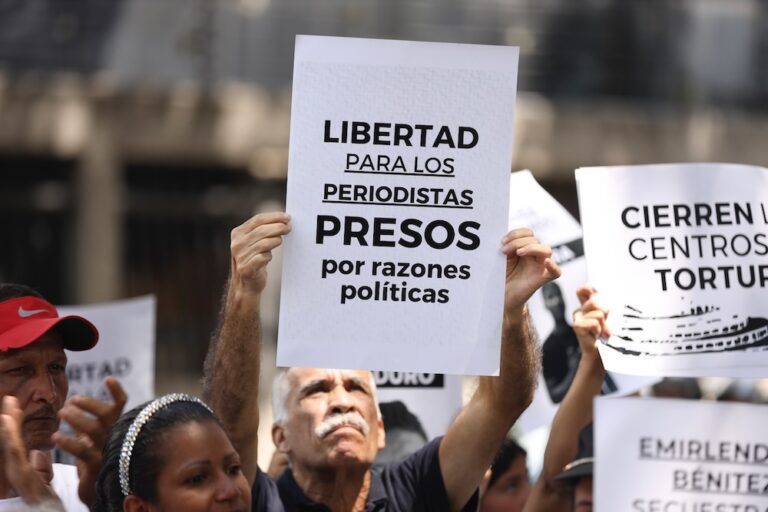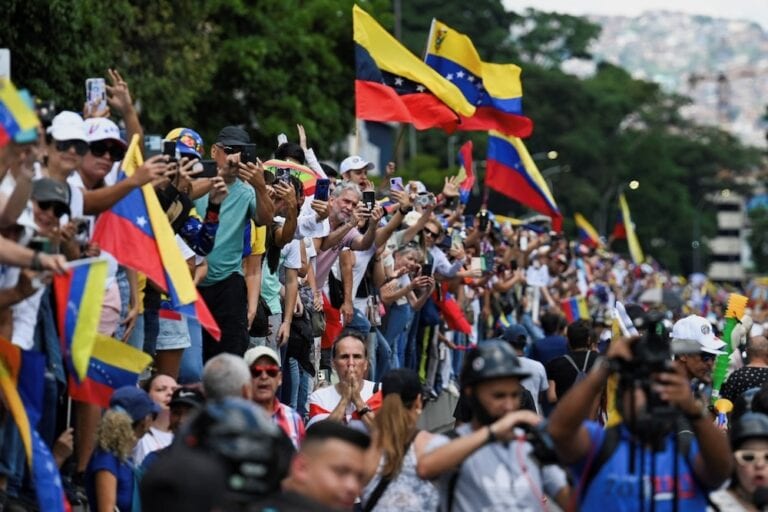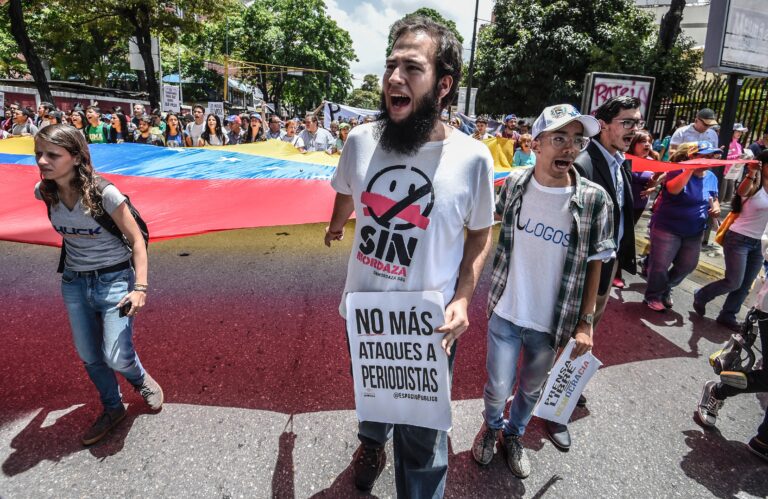A court order in Venezuela prevents 22 executives and representatives of news media, who are involved in a lawsuit filed by National Assembly President, from leaving the country.
This statement was originally published on sipiapa.org on 13 May 2015.
The Inter American Press Association (IAPA) today condemned a court order in Venezuela that prevents the departure from the country of 22 executives and representatives of news media involved in a lawsuit filed by National Assembly President, Diosdado Cabello, for their having reproduced an article that links him to drug trafficking.
Judge María Eugenia Núñez yesterday issued the restriction which prohibits owners and executives of the newspapers El Nacional and Tal Cual and the online publication La Patilla to leave Venezuela, as requested by Cabello in a suit filed on April 23.
Those three media outlets reproduced a report published by the Spanish newspaper ABC based on statements by Leamsy Salazar, a former close collaborator of Cabello. The information, attested to by the Spanish newspaper’s editors, declared that Cabello was one of the heads of the Soles drug cartel that engages in cocaine trafficking in Venezuela.
Among the 22 persons subject to the court order are Miguel Henrique Otero, editor of El Nacional, Teodoro Petkoff Malec, editor of Tal Cual, and Alberto Federico Ravell, owner of La Patilla.
IAPA President Gustavo Mohme, editor of the Lima, Peru, newspaper La República, declared that the order to the media executives to not leave the country “demonstrates once more how the Venezuelan judicial system is being used as an instrument of political power. There is no compliance with the guarantees of due process, which imply that the judge should have first interrogated the accused individually to determine whether or not to issue the restriction order in each case.”
Concerning the issue in question – the lawsuit for having published assertions made by the foreign press – Mohme said, “This action violates the principles established by the Inter-American Court of Human Rights, which ruled that the media cannot be held responsible for faithfully publishing information that was originally disseminated by other media.”
Mohme thus was referring to the Court’s ruling that exonerated journalist Mauricio Herrera Ulloa – currently Costa Rica’s Communication Minister – and the San José newspaper La Nación, after they were found guilty of defamation by that country’s Supreme Court, for having replicated news items from European media concerning alleged corrupt acts that involved a former Costa Rican diplomat.
The chairman of the IAPA’s Committee on Freedom of the Press and Information, Claudio Paolillo, editor of the Montevideo, Uruguay, weekly Búsqueda, said that the court’s action occurs within an overall framework of serious restrictions and attacks on critical and independent media, which “unmasks the climate of authoritarianism that the Nicolás Maduro regime favors.”
“This judicial harassment,” Paolillo added, “is another link in the long restrictive chain that includes strangling the privately-owned media so as to purchase them, directly or through front men, and thus build up an extensive propaganda machinery, which conspires against the free flow of plural and diverse information, that is essential for a democracy.”


